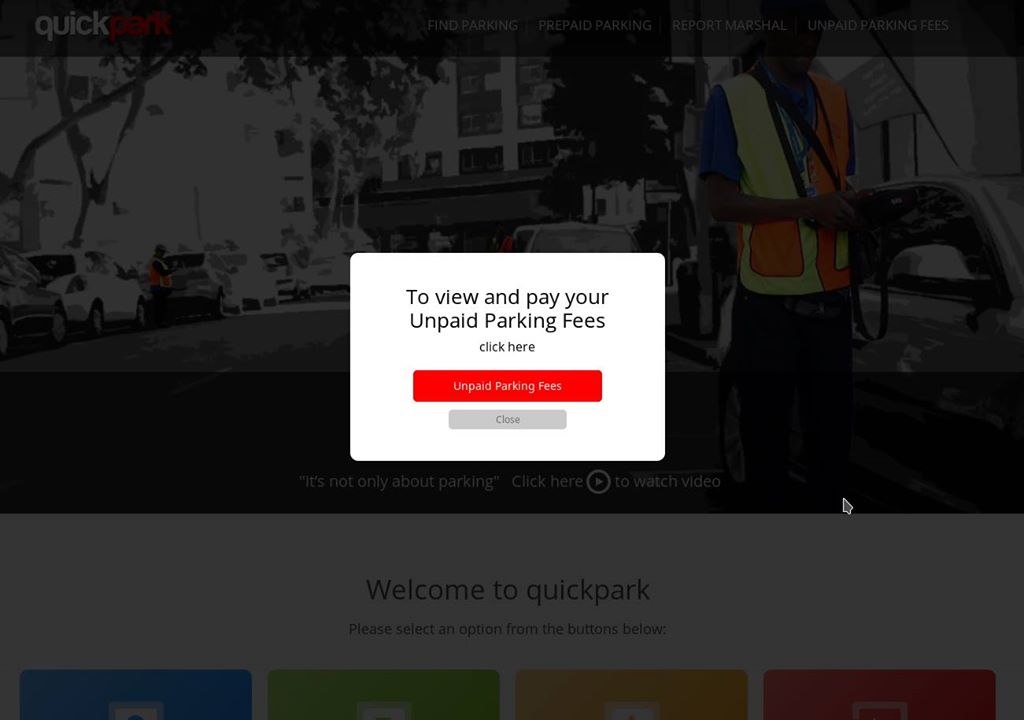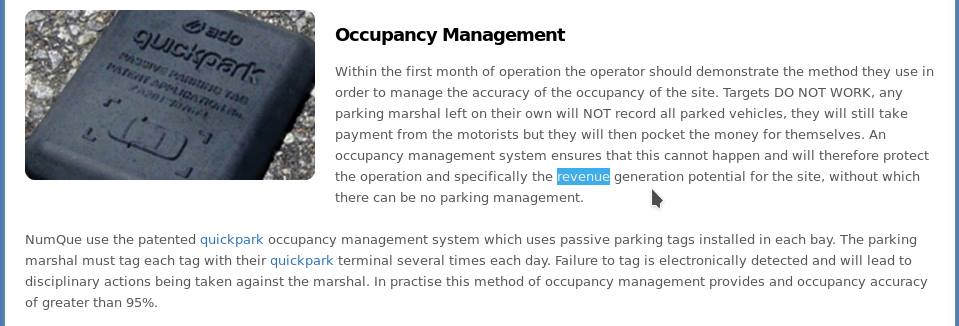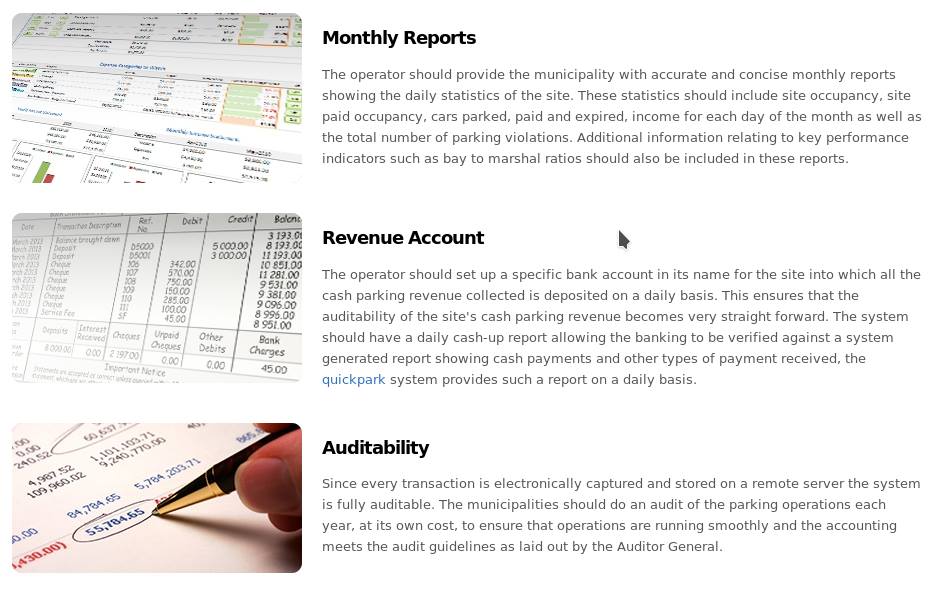All the below information is easily obtained through internet research and a general technical understanding, none of it is in any way confidential.
After investigating some of the 408 parking sensors placed around town I have come to the conclusion that Swakopmund’s ‘QuickPark’ based parking systems is an almost entirely outsourced ‘franchise’ project. Let me explain why I believe this is the case. To do so we need to merely start from the technical aspect, analyse the parking sensors and how they work.
Here is a picture of one as taken by myself in front of Edgars/Hansa Hotel. It is described as a passive parking tag, suggesting that it does not contain it’s own energy source/battery.

So I had a look at the manufacturers website. Upon first visiting the quickpark website I am greeted by this message which hints at the fact that quickpark can potentially handle the entire stack from parking assessment to fees payment online by themselves.

Indeed they also seem to offer prepaid parking cards:

Anyway, at the bottom of the https://www.quickpark.co.za/ website we can find that Ado is the parent manufacturer company, which owns and operate QuickPark itself:

Now after digging for the specific patent number, I found a registrant name on the iptica website:

https://iptica.com/iptica-filings.html I also find a South African patent journal with more details, but of course as usual those were behind a R159/month paywall https://www.greengazette.co.za/documents/patent-journal-11-of-28-november-2012-vol-45-part-2-of-2_20121128-PAT-00011.pdf So instead with a name in hand I took to google patent search and found several filings for Adriaan Michael Oosterberg, two of which bore fruit. The first patent is filed directly under Adriaan’s name and the second is a patent cited in the former explaining the wireless communication details of this device. I also have to observe that both of these are rather very unoriginal patents that base heavily on prior art with little to no novelty in the specific design or implementation of the technology.
https://patents.google.com/patent/WO2014059450A1/en
https://patents.google.com/patent/US20110133958A1/en
In essence, according to the applicable patents this is an RFID (Radio Frequency IDentification) Tag device. The tags on the ground rely on an outside energy source transmitted as a reasonably powerful signal to be energized. Inside the device itself is likely a large coil of wire that acts as a tuned RF antenna as well as a small microchip that reads a electromagnetic field sensor, both of which are energized by the received energy of the antenna.
Thus marshals are required to carry around the equivalent of a high power signal generator to energize these devices as they go around.
Once energized the device then communicates the sensor state (car or no car) to the portable computer device carried by a parking marshal which accordingly sets the state of the parking bay as occupied or unoccupied. It is also capable of alerting the parking marshal of parking bay changes (car leaving/going) from a small distance of a few meters and uses this information to set the occupancy state of a bay along with the time of the change.
When a vehicle is parked in a parking bay the marshal is required to enter the vehicle registration number into their device for the specific bay. Other information such as parking start & end time and occupancy is automatically determined by the device based on the parking sensor tag. Overall information collected by QuickPark systems may include bay occupancy (as determined by the sensor), vehicle registration number, unique ticket id and the time for which a vehicle occupies the parking bay as well as the parking fee paid.
Each marshals portable device itself transmits all this information via a nearby cellular base station to the quickpark servers in South Africa (Thse are hosted with Hetzner ZA). Quickpark & it's servers are responsible for all processing and transactions handling.
Details about the Swakopmund parking system can be seen in realtime via the quickpark.co.za website.

Currently the system is reporting all parking bays as available since the systems has been discontinued for the time being and the devices are not reporting data back to the servers in South Africa.

As you can see from this, oversight & control of this system has almost entirely been abdicated(outsourced) to a South African company, with Namibia Parking Solutions only remaining as a middle man (franchise operator) to locally inventory the devices and manage the parking marshal employee’s and the generated revenue stream.
Other features of the quickpark website include looking at unpaid parking fees for a specific vehicle:

As well as a data login portal for the local operator of the QuickPark system, presumably Swakopmund Municipality and Namibia Parking Solutions.

For interests sake here is a piece of the marketing material for QuickPark that I found elsewhere online:
http://www.streetparking.co.za/parking-system/16/operating-a-parking-system
In this the system is described with specific language targeted at anyone seeking to maximize revenue generation for a potential site.

It further also describes in detail how an integrated e-Parking system may work at a municipal level:

I hope this information has been useful for you, and thank you for reading. Signed: Rigo Reddig

